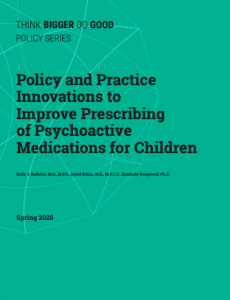Get Involved

 Become a Thought Partner
Become a Thought Partner
Partner with us to produce thought leadership that moves the needle on behavioral healthcare.
 Other options to get involved
Other options to get involved

Thank you!
We received your information and will be in contact soon!
Get Involved

 Grantmaking
Grantmaking
We fund organizations and projects which disrupt our current behavioral health space and create impact at the individual, organizational, and societal levels.
 Participatory Funds
Participatory Funds
Our participatory funds alter traditional grantmaking by shifting power
to impacted communities to direct resources and make funding decisions.
 Special Grant Programs
Special Grant Programs
We build public and private partnerships to administer grant dollars toward targeted programs.
 Program Related Investments
Program Related Investments
We provide funds at below-market interest rates that can be particularly useful to start, grow, or sustain a program, or when results cannot be achieved with grant dollars alone.
Get Involved

 Alyson Ferguson, MPH
Alyson Ferguson, MPH
Chief Operating Officer
Contact Alyson about grantmaking, program related investments, and the paper series.
 Samantha Matlin, PhD
Samantha Matlin, PhD
Senior Learning & Community Impact Consultant
Contact Samantha about program planning and evaluation consulting services.
 Caitlin O'Brien, MPH
Caitlin O'Brien, MPH
Director of Learning & Community Impact
Contact Caitlin about the Community Fund for Immigrant Wellness, the Annual Innovation Award, and trauma-informed programming.
 Joe Pyle, MA
Joe Pyle, MA
President
Contact Joe about partnership opportunities, thought leadership, and the Foundation’s property.
 Bridget Talone, MFA
Bridget Talone, MFA
Grants Manager for Learning and Community Impact
Add some text here

Psychoactive medications are the most expensive and fastest-growing class of pharmaceutical agents for children. The cost, side effects, and unprecedented growth rate at which these drugs are prescribed has raised alarms from health care clinicians, patient advocates, and agencies about the appropriateness of how these drugs are distributed to parents and their children.
The authors of a newly released paper in the Think Bigger Do Good Policy Series reviews the current prescribing of three classes of psychoactive drug (stimulants, antidepressants, and antipsychotics) and efforts to improve pediatric prescribing of these.
Authors, Kelly J. Kelleher, M.D., M.P.H., David Rubin, M.D., M.S.C.E., Kimberly Hoagwood, Ph.D., call for system level interventions and in federal and state policies to address this growing utilization of psychoactive medications. Their recommendations include:
-Increasing the access to and improving the quality of psychotherapy services as an alternative to psychoactive medications. 
-Standardization of treatment protocols and increased emphasis on the value of shared decision making between providers and caregivers.
-The creation of and further implementation of state or insurance company monitoring programs that review prescribing data both retrospectively or prospectively and, in some cases, have peer to peer monitoring by prescribers.
-Greater transparency in prices and incentives among insurers, public agencies, and pharmacy benefit managers.
-Requiring direct negotiations between state Medicaid agencies and drug manufacturers to reduce costs and inappropriate incentives.
-Payment for outcomes related to costs through the larger adoption of value-based purchasing and specifically value-based payment for medications.
We ask that you send the paper to your local, state, and/or federal policy and decision-makers, to advocate for policy reforms and restructured financing models to increase access to integrated behavioral health services.











